Search
Search Results

Definition
Xerxes I
Xerxes I (l. 519-465, r. 486-465 BCE), also known as Xerxes the Great, was the king of the Persian Achaemenid Empire. His official title was Shahanshah which, though usually translated as `emperor', actually means `king of kings'. He is identified...
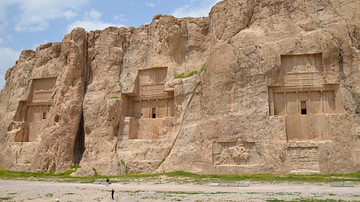
Article
Achaemenid Kings List & Commentary
The Achaemenid Empire (c. 550-330 BCE) was the first great Persian political entity in Western and Central Asia which stretched, at its peak, from Asia Minor to the Indus Valley and Mesopotamia through Egypt. It was founded by Cyrus II (the...
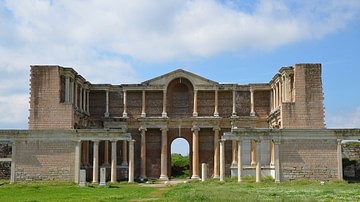
Definition
Sardis
Sardis (near modern-day Sart, Turkey) was the capital of the ancient Kingdom of Lydia founded (according to Herodotus) by the Heracleidae, the Heraclid Dynasty descended from the hero Heracles (Hercules). The city was famous in antiquity...
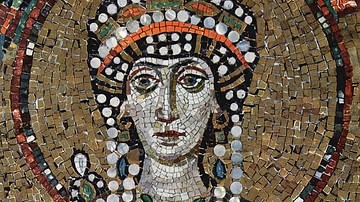
Definition
Empress Theodora
Theodora reigned as empress of the Byzantine Empire alongside her husband, Emperor Justinian I, from 527 CE until her death in 548 CE. Rising from a humble background and overcoming the prejudices of her somewhat disreputable early career...
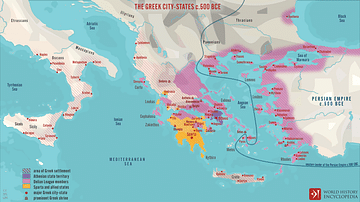
Definition
Ancient Greece
Greece is a country in southeastern Europe, known in Greek as Hellas or Ellada, and consisting of a mainland and an archipelago of islands. Ancient Greece is the birthplace of Western philosophy (Socrates, Plato, and Aristotle), literature...
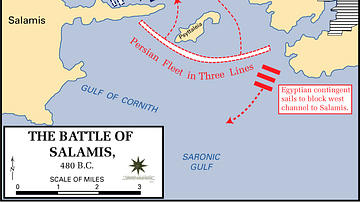
Definition
Battle of Salamis
The Battle of Salamis was a naval battle between Greek and Persian forces in the Saronic Gulf, Greece in September 480 BCE. The Greeks had recently lost the Battle of Thermopylae and drawn the naval Battle at Artemision, both in August 480...

Definition
Battle of Actium
The Battle of Actium (2 September 31 BCE, fought in the Ionian Sea off Actium, Greece) was the decisive engagement of the civil war fought between Octavian Caesar (l. 63-14 CE, later known as Augustus, r. 27 BCE - 14 CE) and the forces of...

Definition
Hipparchus of Nicea
Hipparchus of Nicea (l. c. 190 - c. 120 BCE) was a Greek astronomer, geographer, and mathematician regarded as the greatest astronomer of antiquity and one of the greatest of all time. He is best known for his discovery of the precession...
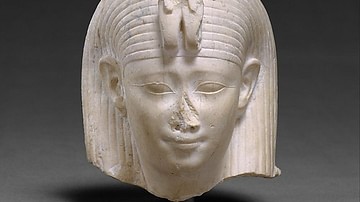
Definition
Arsinoe II Philadelphus
Arsinoe II (l. c. 318/311 - c. 270/268 BCE), daughter of Ptolemy I became one of the most enduring figures of the Lagid or Ptolemaic Dynasty and left an undeniable mark in the historical evidence. She was married three times; first to Alexander...

Definition
Martyr
A martyr is someone who voluntarily dies for either a religious or secular cause. The word originates from "witness" in Greek and is related to a witness in court testifying to one's beliefs or truth, despite the risk involved. As such, it...